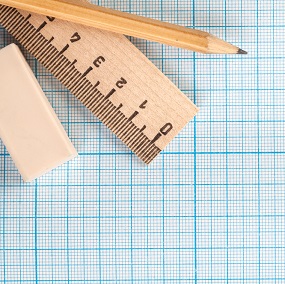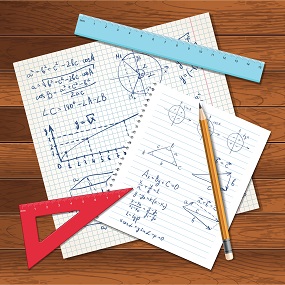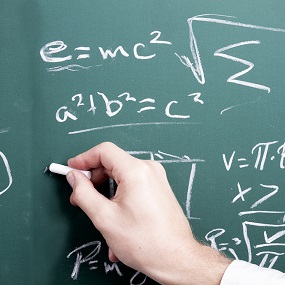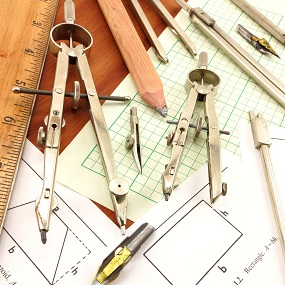GCSE Maths
The Maths GCSE course gently guides the student through basic mathematical skills, progressing onto more advanced material as the student’s skills and abilities develop. The Maths GCSE course is divided into two parts: the first is for all students; the second is for those who will be taking the Higher tier of the examination.
International GCSE Maths
The Maths IGCSE course gently guides the student through basic mathematical skills, progressing on to more advanced material as the student’s skills and abilities develop. Each lesson begins with a set of clearly stated objectives and an explanation of its place in the overall programme of study.
A level Maths
There have been many changes in Mathematics over the years, at ‘O’ level, then GCSE and IGCSE, and at ‘A’ level. In the 1960s “Modern Mathematics” was introduced and the new specifications involving this threw out much of the old traditional work. This was fine for the very able students, but those who found Mathematics less easy had many problems, since these modern specifications contained topics which were difficult to relate to practical ideas.
A level Maths and Mechanics
The Mechanics A level course includes two major components – AS level and A2 level. The AS level is a qualification in its own right and may be studied for on a one-year distance learning course. The course has 4 modules of pure mathematics and 2 of Mechanics.
A level Maths and Statistics
This course prepares candidates for the AQA Mathematics AS level syllabus 5361, for examination in 2015 and later years. Most candidates will then study the A2 syllabus 6361. The full Advanced level qualification comprises AS and A2.




